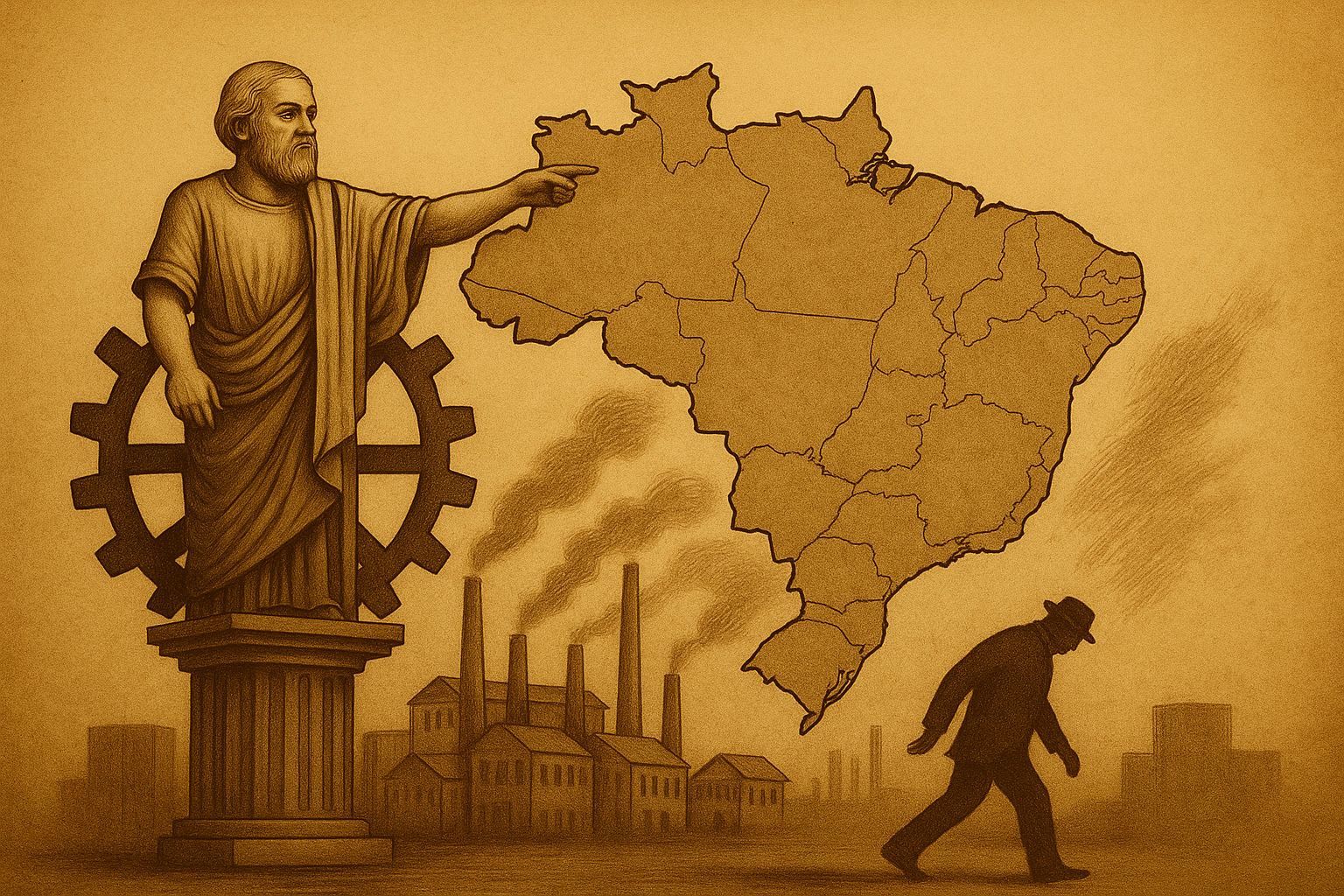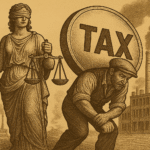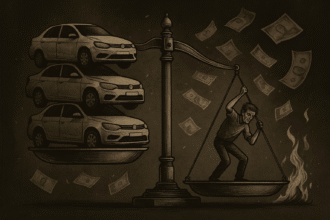There is a pattern in Brazilian economic policy that repeats itself as tragedy — and then as parody. Getulio Vargas to Luiz Inácio Lula da Silva, passing through JK, Geisel, Sarney, FHC, Dilma and now Haddad, the State always returns to the center of the economy, as if it were the redeemer, engine and tutor of progress. And always with the same results: uncontrolled spending, persistent inflation, rising debt, productive stagnation and fiscal populism.
Even after decades of failed attempts, Brazil insists: when all else fails, return to interventionism.
Read also: The Real Scam: How We Destroyed the Value of Our Own Currency and Billion-dollar subsidies, popular inflation: the (in)visible bill for “state aid”.
The return of the PAC: the old illusion of developmentalism
In 2024, the Lula government announced the resumption of the Growth Acceleration Program (PAC), with projects spread across the country and a focus on “low-income populations”. The justification? To stimulate the economy and improve infrastructure.
According to the article G1, the new PAC intends to resume halted works and start large state projects with a public budget.
Source: G1 – Lula prepares PAC projects with a focus on low income
The rhetoric is the same as always: “turn the economy around”, “create jobs”, “make the State invest where the market doesn’t want it”. But the history is clear: Work is delayed, expenses are overrun, results are not forthcoming — and the bill falls on the taxpayer.
Haddad and the veneer fiscalism
While the government promises fiscal responsibility, the practice follows the opposite path. Finance Minister Fernando Haddad has been meeting with rating agencies, promising reforms and adjustments — but the numbers do not support this speech.
According to the Poder360, Haddad reaffirmed that “there is no change of course in fiscal policy objectives”, even in the face of worsening targets, increased spending and the absence of a surplus.
Source: Poder360 – Haddad reaffirms fiscal policy without changing course
The problem is not the rhetoric — it is the contradiction between the promise of stability and the practice of state expansionism.
Repeating the mistakes of the past — with different names
THE West Magazine sums it up nicely: Lula's government's economic agenda repeats the mistakes of previous packages — excessive state protagonism, superficial relief to consumption, absence of structural reforms and fiscal expansion.
Source: Revista Oeste – Lula government repeats mistakes from previous packages
It's the same cycle:
- State promises to “invest to grow”;
- Creates programs, subsidies and incentives;
- Debt rises, inflation returns, confidence falls;
- And the market is accused of “not cooperating”.
The State as a fetish — not as a solution
Brazil carries a statist tradition rooted in its political formation: the State as the center of everything, father and mother of the economy, great planner, great intervener. But in practice, It is the biggest obstacle to productivity, innovation and economic freedom.
While countries move forward with reforms, privatizations, market freedom and decentralized innovation, Brazil continues to believe that the next state package is that “this time it will work”.
It doesn't work. It never did. It never will.
Debt grows, productivity stagnates
With a tax burden of over 33% of GDP, Brazil continues to collect a lot and spend poorly. Public debt exceeded 75% of GDP in 2024. And Brazilian worker productivity remains among the lowest in the world — according to data from FGV and the World Bank.
I.e: We spend like a rich country, we produce like a poor country and we pretend that the problem is “lack of public investment”.
When the State becomes the problem itself
The Brazilian State is present where it should not be — controlling prices, inventing rules, manipulating contracts — and absent where it should act: security, justice, contractual freedom.
By intervening directly in the economy, it generates distortions, creates dependency, sucks up productive resources and destroys the incentives that make the market work.
Why don't we learn?
This question is the heart of this text. Why does Brazil insist on the same failed formulas? Why doesn’t it learn from its mistakes? The answer is uncomfortable, but necessary:
Why statism It is not error — it is method.
He does not fail — it serves interests. It serves those who live off public funds, those who depend on positions, those who build overpriced bridges, those who profit from consulting for programs that never get off the ground.
It is a closed system in itself, protected by ideology and sustained by economic ignorance.
Conclusion: the future hijacked by the past
Brazil needs to break the cycle. The future will not come from more PAC, more subsidies, more programs, more ministries. The future will come when the country understands that the State is not the engine of the economy — it is the brake.
And as long as we continue to resort to it as a magic solution to all problems, we will remain stuck in the past — in inflation, debt, stagnation and populism.
📩 If you want to understand why Brazil insists on failing and how to break the cycle of statism,
subscribe to the newsletter Economic Radar.
Every week, critical and direct analyses of the errors that the official discourse tries to hide.





